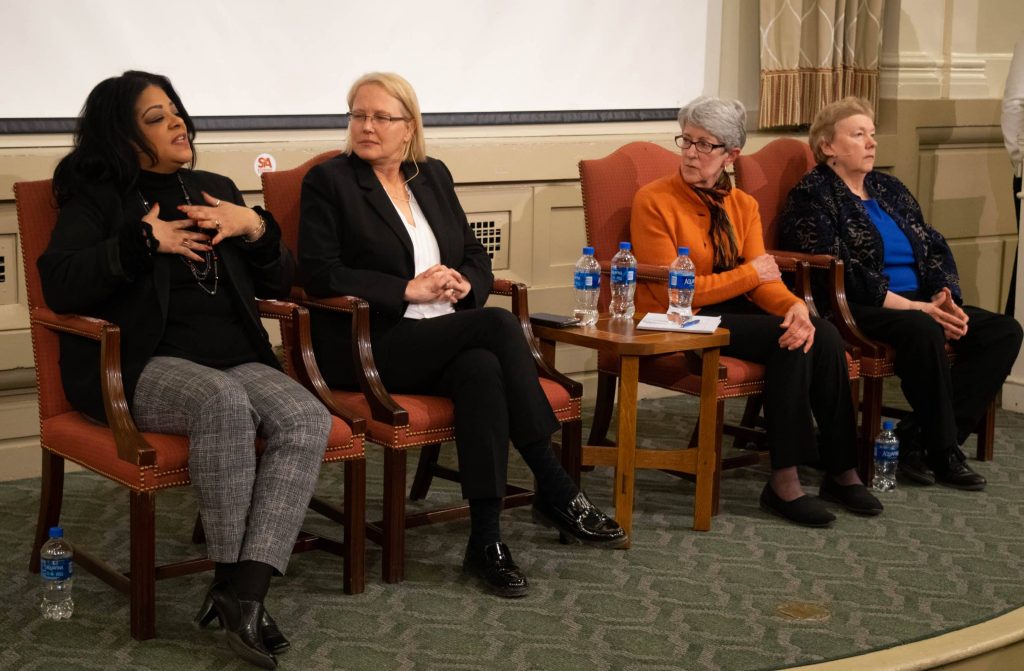Panel discusses women in American politics a century after suffrage
Panel discusses women in American politics

On March 1, the Maxwell School of Citizenship and Public Affairs held a panel discussion on women in American politics featuring scholars and regional politicians. The event was part of Maxwell’s State of Democracy Lecture Series.
The panel started with a presentation by Susan Carroll, professor of political science and senior scholar at Rutgers University’s Center for American Women and Politics. Carroll explained the recent changes in the country’s political landscape, as a high number of women were elected to Congress in 2018.
“Women bring different public policy perspectives,” Carroll said.
She highlighted the 127 women currently serving in Congress and the changes those women are making for the country. Carroll also noted that the current Congress is more diverse, as 43 women of color joined the team along with the first Muslim and Native American women ever elected to Congress.
Carroll added that the impact of the Women’s March and MeToo movement also play a role in women’s involvement in politics. Also, newly elected women politicians became role models for the new generation.
“They have this different life experiences that have given them different perspectives which they bring to the business of Congress,” Carroll continued. “We found that they were more result-oriented and less concerned getting credit for their work or the media headlines.”
The panel also featured regional public officials such as Joanie Mahoney, chief operating officer at SUNY-ESF and former Onondaga Country executive, and Pam Hunter, New York state Assemblywoman. Kristi Anderson, a regular panelist on WCNY’s Ivory Tower, moderated the panel and also participated in the discussion.
Mahoney shared her own experience as a female politician who started her career more than 20 years ago. She compared the work effectiveness of women and men and stated female politicians only aim to work and accomplish tasks, while men sometimes consider their job as a “game.”
“The whole thing seems like a game to them,” Mahoney said. “Making sure that the other team doesn’t get…We are not there for any reason other than to accomplish something. We want to do it, they want to be it.”
Hunter stated that women in legislation offices bring up various important issues to light.
“All of us are having conversation where we talk about childcare as economic development opportunities,” Hunter said. “Who does speak about childcare as economic development opportunity? Those are the things women bring back.”
According to Carroll, although the number of women running for office is increasing, a lot of women still need more encouragement to choose a career in politics.
Rachel Pierce, a sophomore in the College of Arts and Sciences, said she wants to get involved in politics in the future. Pierce explained that the past election was very special for her as more women took office in Congress.
“I think this was a turning point,” Pierce said. “This push of the 2018 election is going to be in textbooks.”
“The momentum will continue,” she said. “America will be a better place for women and minorities because of this election.”





